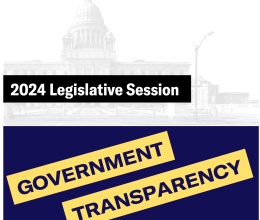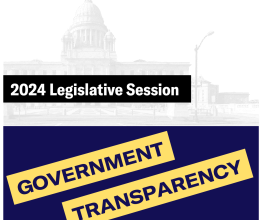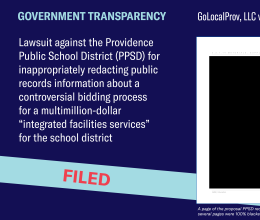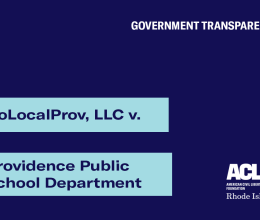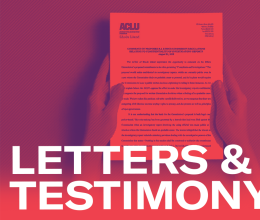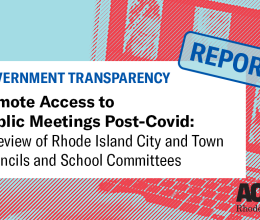The ACLU and a number of other national organizations concerned about access to public records today filed a “friend of the court” brief in the U.S. Supreme Court in support of a Rhode Island resident’s court fight for open government.
The case involves Pawtucket attorney Mark McBurney who is challenging the constitutionality of a Virginia law that allows only residents of that state to invoke Virginia’s Freedom of Information Act. McBurney had filed an open records request with Virginia’s Division of Child Support Enforcement to obtain documents involving a dispute with his ex-wife over child support payments. His request for the records was denied solely because he is not a Virginia resident. After a federal appellate court upheld the law’s constitutionality, the U.S. Supreme Court agreed to review that ruling on behalf of McBurney and another appellant in the case, a California resident who had unsuccessfully requested certain Virginia real estate tax assessment records.
The “friend of the court” brief was filed on behalf of the ACLU, the American Library Association, the National Freedom of Information Coalition and more than a half dozen other groups. It argues that open records laws like Virginia’s that discriminate against non-residents hamper the public’s right to participate in political advocacy. The brief notes: “State and local records bear on a variety of issues of national importance, including oversight of political leaders, campaign finance, crime, health trends, and education. Many of the [organizations signing the brief] have used state freedom of information laws to access information concerning these important issues.”
Further emphasizing the impact of the law, the brief argues: “Access to state public records is crucial to non-residents in a wide range of occupations, including academics and researchers, journalists, historians, sociologists, and epidemiologists, as well as genealogists, attorneys [and] land developers. . .”
RI ACLU executive director Steven Brown said today: “The Supreme Court’s decision in this case has potentially significant ramifications for journalists and advocates whose investigations into important public policy issues cannot be kept within the boundaries of one state’s borders. A national Constitution should not be construed to authorize Virginia’s disturbingly parochial view of the public’s right to know. We commend Mr. McBurney for doggedly pursuing this issue.” Oral argument in the case is scheduled for February 20th.

